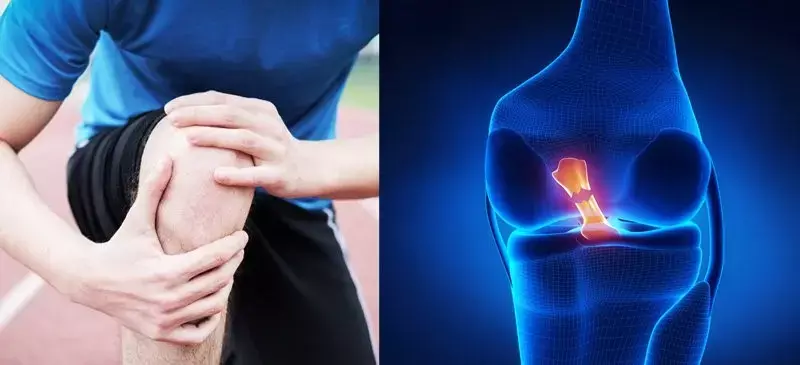- Home
- Medical news & Guidelines
- Anesthesiology
- Cardiology and CTVS
- Critical Care
- Dentistry
- Dermatology
- Diabetes and Endocrinology
- ENT
- Gastroenterology
- Medicine
- Nephrology
- Neurology
- Obstretics-Gynaecology
- Oncology
- Ophthalmology
- Orthopaedics
- Pediatrics-Neonatology
- Psychiatry
- Pulmonology
- Radiology
- Surgery
- Urology
- Laboratory Medicine
- Diet
- Nursing
- Paramedical
- Physiotherapy
- Health news
- Fact Check
- Bone Health Fact Check
- Brain Health Fact Check
- Cancer Related Fact Check
- Child Care Fact Check
- Dental and oral health fact check
- Diabetes and metabolic health fact check
- Diet and Nutrition Fact Check
- Eye and ENT Care Fact Check
- Fitness fact check
- Gut health fact check
- Heart health fact check
- Kidney health fact check
- Medical education fact check
- Men's health fact check
- Respiratory fact check
- Skin and hair care fact check
- Vaccine and Immunization fact check
- Women's health fact check
- AYUSH
- State News
- Andaman and Nicobar Islands
- Andhra Pradesh
- Arunachal Pradesh
- Assam
- Bihar
- Chandigarh
- Chattisgarh
- Dadra and Nagar Haveli
- Daman and Diu
- Delhi
- Goa
- Gujarat
- Haryana
- Himachal Pradesh
- Jammu & Kashmir
- Jharkhand
- Karnataka
- Kerala
- Ladakh
- Lakshadweep
- Madhya Pradesh
- Maharashtra
- Manipur
- Meghalaya
- Mizoram
- Nagaland
- Odisha
- Puducherry
- Punjab
- Rajasthan
- Sikkim
- Tamil Nadu
- Telangana
- Tripura
- Uttar Pradesh
- Uttrakhand
- West Bengal
- Medical Education
- Industry
Early Surgery for acute ACL rupture tied to improved knee function, finds study

Rupture of the anterior cruciate ligament (ACL) is a common injury with acute trauma. The incidence is 49-75 per 100 000 person-years, with individual and socioeconomic burdens. A recent study suggests that in patients with acute rupture of the ACL, those who underwent early surgical reconstruction have better outcomes than patients with rehabilitation followed by elective surgical reconstruction. The study findings were published in the BMJ on March 09, 2021.
The seminal Knee Anterior Cruciate Ligament, Nonsurgical versus Surgical Treatment (KANON) trial found that non-operative treatment of rupture of the ACL, with exercise, was successful in at least half of these patients. Early reconstruction of the ACL had a similar functional outcome after two years of follow-up as rehabilitation and optional delayed ACL reconstruction. However, there is limited evidence available on the optimal approach from the patient's perspective for the management of ruptured ACL. Therefore, researchers of the Netherlands conducted a study to assess whether a clinically relevant difference exists in patients' perceptions of symptoms, knee function, and ability to participate in sports over a period of two years after rupture of the anterior cruciate ligament (ACL) between two commonly used treatment regimens.
COMPARE was an open labelled, multicentre, parallel randomized controlled trial of 167 patients with acute rupture ACL admitted in six hospitals in the Netherlands, between May 2011 and April 2016. Researchers randomized 85 patients to early ACL reconstruction and 82 to rehabilitation followed by optional delayed ACL reconstruction after three months. Researchers evaluated patients at three, six, nine, 12, and 24 months. The major outcomes assessed were patients' perceptions of symptoms, knee function, and ability to participate in sporting activities with the International Knee Documentation Committee score (optimum score 100) at each time point over 24 months.
Key findings of the study were;
• In the rehabilitation and optional delayed ACL reconstruction group, the researchers noted that about 41 (50%) patients underwent reconstruction during follow-up.
• After 24 months, they found that the early ACL reconstruction group had a significantly better but not clinically relevant International Knee Documentation Committee score (84.7 v 79.4).
• After three months of follow-up, they noted that the International Knee Documentation Committee score was significantly better for the rehabilitation and optional delayed ACL reconstruction group.
• However, after nine months of follow-up, they found that the difference in the International Knee Documentation Committee score changed in favour of the early ACL reconstruction group and become smaller by 12 months.
• In the early ACL reconstruction group, they reported four re-ruptures and three ruptures of the contralateral ACL during follow-up while in the rehabilitation and optional delayed ACL reconstruction group, they reported two re-ruptures and one rupture of the contralateral ACL.
The authors concluded, " In patients with acute rupture of the ACL, those who underwent early surgical reconstruction, compared with rehabilitation followed by elective surgical reconstruction, had improved perceptions of symptoms, knee function, and ability to participate in sports at the two-year follow-up."
They further added, "This finding was significant (P=0.026) but the clinical importance is unclear. Interpretation of the results of the study should consider that 50% of the patients randomised to the rehabilitation group did not need surgical reconstruction."
For further information:
Medical Dialogues Bureau consists of a team of passionate medical/scientific writers, led by doctors and healthcare researchers. Our team efforts to bring you updated and timely news about the important happenings of the medical and healthcare sector. Our editorial team can be reached at editorial@medicaldialogues.in.
Dr Kamal Kant Kohli-MBBS, DTCD- a chest specialist with more than 30 years of practice and a flair for writing clinical articles, Dr Kamal Kant Kohli joined Medical Dialogues as a Chief Editor of Medical News. Besides writing articles, as an editor, he proofreads and verifies all the medical content published on Medical Dialogues including those coming from journals, studies,medical conferences,guidelines etc. Email: drkohli@medicaldialogues.in. Contact no. 011-43720751


